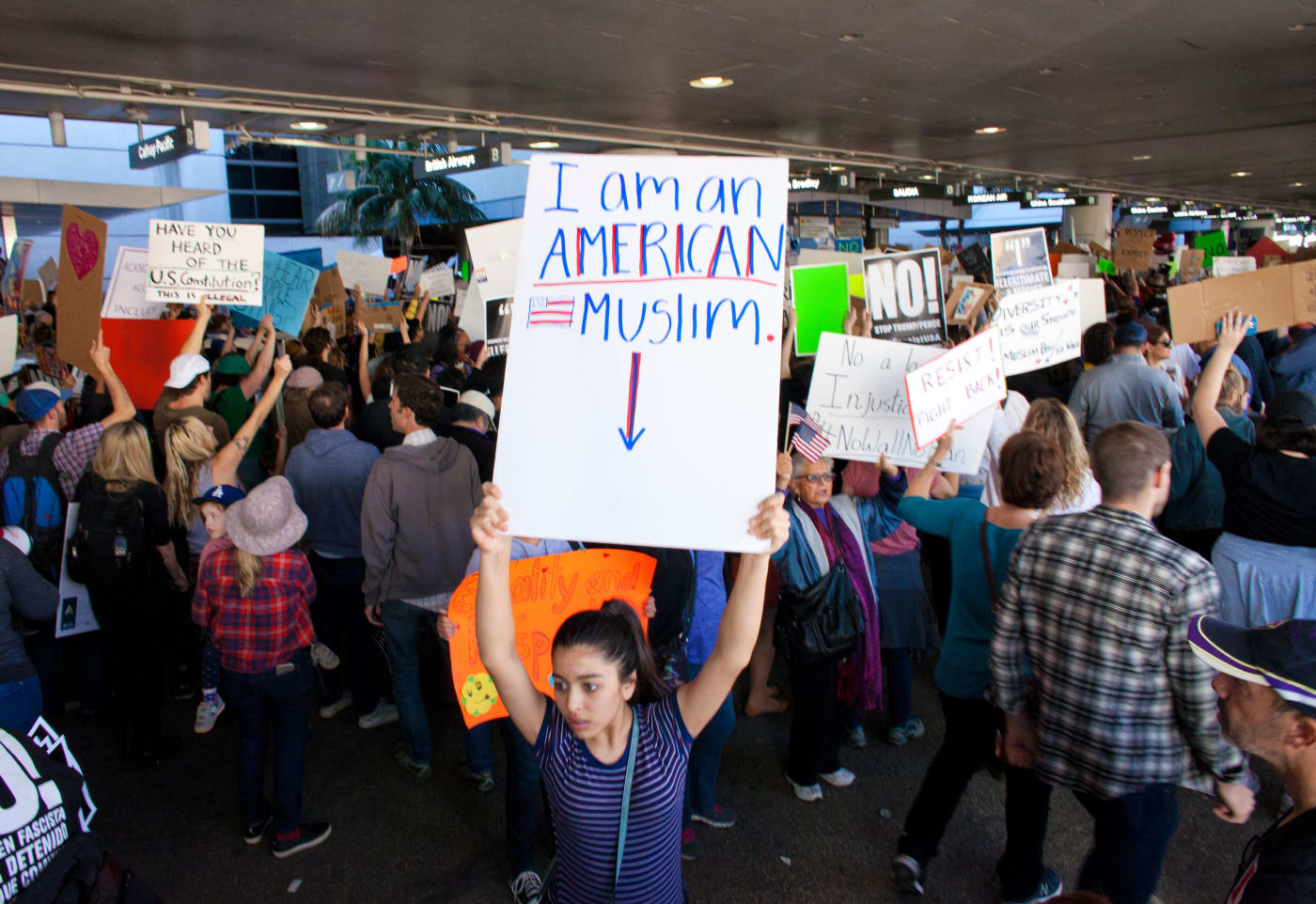The Los Angeles City Council is set to vote Tuesday over whether to move forward with a federally funded surveillance program targeting Muslim Americans that immigrant rights advocates say poses a major threat to civil liberties.
Los Angeles is one of three pilot cities—together with Boston and Minneapolis—set to receive $425,000 in grant money from the federal Countering Violent Extremism program, launched under the Obama administration to target a broad array of violent extremist groups. But the Trump administration appears to be using the CVE program as a pretext to surveil Muslim-American communities exclusively, advocates say. For immigrants’ rights advocates the news is particularly unsettling after the Supreme Court’s surprise decision on President Donald Trump‘s travel ban targeting those from Muslim-majority countries.
In February of 2017, the administration reportedly attempted to stop the program from addressing what analysts warn is the emergence of rampant radical, violent white supremacy and focus its work on penetrating Muslim-American community organizations—going as far as to try to change the program’s name to “Countering Islamic Extremism” or “Countering Radical Islamic Extremism,” Reuters reported, citing several sources briefed on the policy shift. In June of 2017, the Department of Homeland Security withdrew funding from Life After Hate, a group that enables people to leave hate—primarily white supremacist—groups, according to the organization.
CVE “was extremely problematic under the Obama administration,” says Marwa Rifahie, a civil rights attorney with the Council on American Islamic Relations’ Los Angeles office. “The difference is that, under the Obama administration, it also targeted white extremists and white supremacy.”
Human rights organizations made California Public Records Act requests about the CVE program in both February and July of 2017. The information that the municipal government yielded was delayed and incomplete, and a group of civil liberties organizations including the Los Angeles branches of Asian Americans Advancing Justice and the of the Council on American Islamic Relations filed suit against the city, seeking further information on how it intends to use the funds and what strings are attached.
“We’ve made it very clear we don’t like CVE. It’s a bad policy,” says Laboni Hoq, AAAJ–L.A.’s litigation director. “Experts say this isn’t an effective way to engage in counterterrorism. There is no study showing that it helps to identify people on the path to radicalization or who are likely to commit violent acts. We definitely oppose it, but we want to look at documents and see how this is effecting communities.”
The CVE program penetrates groups—many of which offer much-needed public services—to collect data on Muslim Americans going about their lives to ascertain whether they are being radicalized—without any transparency or accountability over what the Trump administration qualifies as a sign of radicalization, advocates warn.
“It uses organizations used in community support. Organizations that offer mental-health aid. The way we’ve seen it roll out from the outside is a way to use their relationships with communities to data gather and to facilitate knowledge of our community,” Rifahie says. Under the program, camp counselors could collect data on the behavior of youth that, while entirely normal for a person of their age, is deemed suspicious by the DHS. “Now you have files on these teens that criminalizes them when they’ve done nothing wrong,” she adds.
Photo Courtesy of Pacific Standard.
